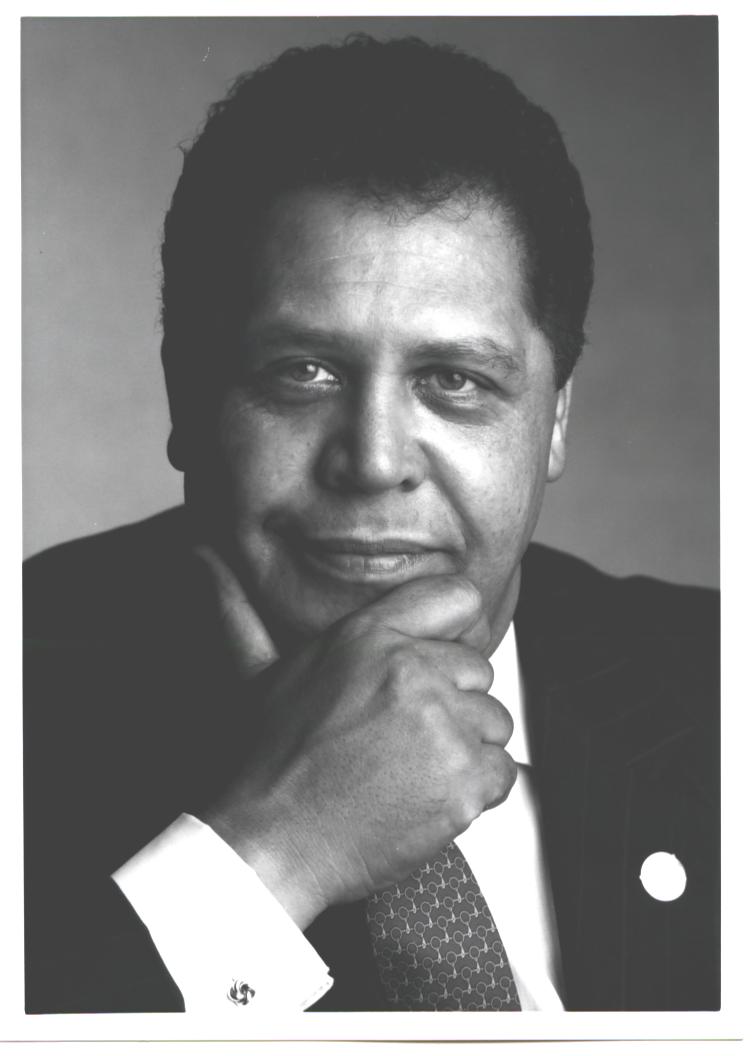
In June 1990, Atlanta officials prepped for a visit from someone who had suddenly become one of the world’s most beloved figures – Nelson Mandela.
Mandela, who had spent 27 years as a political martyr in South African prisons on charges of sabotage, had been released a few months earlier after intense public and political pressure from much of the world. He had become a universal symbol of peace and tolerance.
In Atlanta, dozens of banners were being printed to greet him. Hundreds of police officers were mobilized. He was chauffeured in an armored limousine provided by the U.S. State Department. It was a welcome befitting a head of state and a major coup for the city, the headquarters of the civil rights movement and birthplace of the Rev. Martin Luther King Jr.
Early on the morning of June 27, dozens of people — among them, Mayor Maynard Jackson, Gov. Joe Frank Harris, Coretta Scott King and the Rev. Joseph E. Lowery, who was then president of the Southern Christian Leadership Conference and chairman of the host committee _ gathered at Hartsfield International Airport to greet Mandela’s chartered jet.
Mandela and his then-wife Winnie Mandela walked off the plane and down a red carpet.
Then the man who had been silenced for 27 years spoke.
“This is our first stop in the southern United States,” Mandela said. “The weather, the landscape, the warmth of the people evokes a memory for us of home. Unlike you, we are still under the grip of white supremacy. It is a great honor and pleasure to be where Martin Luther King Jr. was born and brought up. We look forward to paying our respects . and to meeting with some of the most illustrious daughters and sons of this city.”
“We welcome you home,” Mayor Jackson said.
Mandela, who was released from prison on Feb. 11, 1990, was eager to spread his message of ending apartheid as part of an eight-city tour through America, where he had become a cult symbol, and was well on his way to cementing his place as an international leader.
Mandela’s trip to Atlanta was on the tail end of the American leg of a grueling six-week tour of Europe, North America and Africa. He arrived in Atlanta after spending the previous day meeting with President George H.W. Bush in the White House.
In New York City, he had been feted with a ticker-tape parade up Broadway and a concert at Yankee Stadium. In Detroit, he would meet Rosa Parks. In Los Angeles, he would be serenaded by Diana Ross. Cuban-American hecklers awaited him in Miami, upset with his defense of Fidel Castro.
In Atlanta, where he wanted to show the connection between the South African struggle against apartheid and the American struggle for civil rights, he was adored.
When Mandela came to the King Center, he briefly met with the King family in the study before placing a wreath at Martin Luther King Jr.’s crypt.
“When he came through everyone’s jaw dropped,” said Steve Klein, a spokesman for the King Center then and now. “The center has been visited by heads of state, prime ministers, presidents, kings and queens. But those visits didn’t measure up to Mandela’s. He was bigger than royalty. Mandela is somebody who actually earned the tremendous respect of people all over the world. He didn’t inherit it.”
Six years before Atlanta would host the Olympics, Mandela’s visit was, according to Carl Ware, now a retired senior Coca-Cola Co. executive, a “high moment” and a tremendous boost for the city’s growing international reputation.
“He was majestic,” said Ware. “He had a humble spirit. And I had the sense he was very conscious of his own power and aware of his impact on South Africa and the world. He was very confident of the power of good over evil.”
Ware said Mandela had a tight schedule, so the trip was “like a flash,” and not as extensive as his 1993 fundraising visit on the eve of his historic presidential run.
His visit saw a perfect 79 degrees in Atlanta. More than 50,000 people crammed into Georgia Tech’s Bobby Dodd Stadium that night to hear Mandela.
Bernice King, the current CEO of the King Center, would later say about Mandela: “Outside of Jesus Christ and my parents, he is the one.”
When she met him, she found a very “calm spirit, very dignified . a forgiving spirit. It was so comforting to me.”
Mandela then met with civil rights leaders at Big Bethel AME Church, where Lowery presented him with the SCLC’s Human Rights Award, and spoke at Morehouse’s King Chapel, where 37 colleges, including those in the Atlanta University Center, presented him with honorary degrees.
